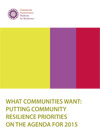
On behalf of the Huairou Commission and UNDP
This action research, conducted by the Community Practitioners Platform for Resilience in seven Asian countries, is an effort to capture the voices of community leaders and bring the resilience priorities of poor, disaster-prone communities into debates that will shape the new policy frameworks on disaster risk reduction to be launched in 2015.
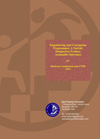
On behalf of the Huairou Commission and UNDP
Corruption is a major impediment to development and the achievement of the Millennium Development Goals. Undertaken in eight nations worldwide using several indicators and translators, this study documents the ways in which grassroots women in the developing world experience public-sector corruption. It voices their concerns and presents their recommendations for country-level anti-corruption initiatives. The study was launched by the UNDP at the International Anti-Corruption Conference organised by Transparency International in Brasilia in November, 2012.
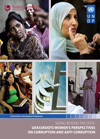
On behalf of the Huairou Commission and UNDP
The Huairou Commission and UNDP's Global Thematic Programme on Anti-Corruption for Development Effectiveness (PACDE) teamed up to undertake a study in 11 communities across eight countries spanning three continents. The study illuminates grassroots women's perceptions and lived experiences, bringing to the forefront grassroots women's voices to contribute to anti-corruption programming.
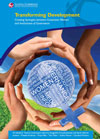
A compendium of best practices that illustrate how grassroots organisations have evolved strategies from global trends to include women in governance.
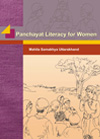
In collaboration with Mahila Samakhya, Uttarakhand
A toolkit to systematically build the governance capacities of women in the Panchayats.
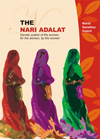
For Mahila Samakhya, Gujarat
Context, perspective and non-negotiable criteria for the setting up and functioning of the Nari Adalat or women's courts whose objective is to provide gender justice to poor women.
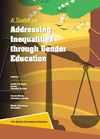
Mahila Samakhya, Andhra Pradesh, Karnataka, Kerala
A toolkit that addresses gender education through capacity building for master trainers at the state and district levels. These trainers subsequently train schoolteachers on gender equality in education.
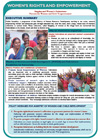
For the Ministry of Women and Child Development
Based on a one-year study of the best practices in grassroots women's empowerment in Mahila Samakhya, these messages include promoting synergies with rights-based women's collectives, recognising them as grassroots partners for women's issues, and recognising federations as building blocks for the holistic development of women.
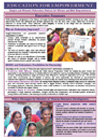
For the Ministry of Human Resource Development
Policy inputs to enable the Ministry to locate literacy programmes within women's collectives and embed literacy into the empowerment process, thereby increasing social and community insights into educational processes.
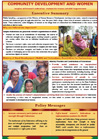
For the Ministry of Rural Development
Sanghas and federations, rights-based collectives of rural women's organisations, emerged as a result of the Mahila Samakhya programme of the MHRD. This policy brief, culled for the Ministry of Rural Development from a year-long study of the best practices of these organisations, recommends ways in which community participation can be increased by linking with federations as implementation partners.
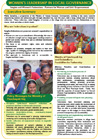
For the Ministry of Panchayati Raj
The primary agenda of all Ministry of Panchayati Raj (MoPR) programmes is to ensure collective empowerment through a bottom-up approach. This brief, based on a year-long study of grassroots collectives of the Mahila Samakhya programme, recommends promoting community-based governance mechanisms, recognising these organisations as grassroots partners for planning and involving them to engender governance.
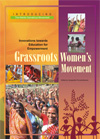
For DFID, India
A compendium that covers best practices and innovations in the Mahila Samakhya programme across eight states and showcases the icons among them. The core practices include (a) The Adult Literacy Programmes, that impart need-based literacy and numeracy (b) Nari Adalats (women's courts) that deliver gender justice (c) Mahila Shikshan Kendras (MSKs), residential schools for young adolescent girls, and (d) Kasturba Gandhi Balika Vidyalayas (KGBVs), a national programme which mainstreamed the MSKs. The innovations include (a) the Data Exhibition in Assam (b) the Panchayat Literacy Programme for Women in Uttarakhand.
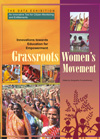
For the Ministry of Human Resource Development and DFID
The Data Exhibition was a tool created by Mahila Samakhya, Assam, to enhance accountability and transparency in Panchayati Raj Institutions. The initiative involved women's groups holding public exhibitions wherein real entitlement data was juxtaposed against official data of entitlements obtained by filing the RTI. This exposed the corruption in the system and helped people demand their entitlements. The study has been so well received that the National Women's Empowerment Mission is now piloting a programme to institutionalise this innovation nationally.
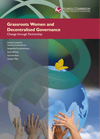
On behalf of the Huairou Commission
A compendium of best practices documenting grassroots women's initiatives in local governance in India, Kenya, Peru, Russia and the Czech Republic.
Sangeetha Purushothaman and Mukta Banerjee
The Global Dialogues programme was initiated by the Ford Foundation in 2002 to draw visibility and greater legitimacy to the area of human sexuality, and thereby influence decision-making. In evaluating the work of the South and South-East Asia Resource Centre on Sexuality, based in TARSHI, an NGO in New Delhi, this report analyses results, identifies effective and sustainable strategies, and examines how organisational development issues affect results.
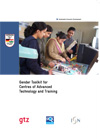
For GTZ, an Indo-German bilateral technical cooperation initiative
BPF has the capacity to engender a variety of areas - governance, corruption, resilience, climate change, energy, and so on. The primary objective of this study, commissioned by GTZ, an Indo-German bilateral technical cooperation initiative in 2007, was to develop a gender strategy to help expand technical opportunities for women. BPF researched technical training institutes across five states in India and found that open access alone does not boost the enrollment of women in technical and vocational education and training institutes TVETs. What is required is a deliberate gender strategy that involves active recruitment, adaption to the needs of women and dialogue on gender mainstreaming. We formulated a five-module gender toolkit centred on gender planning, budgeting, sensitisation, implementation of gender plans, and monitoring.
For the Task Force on Skill Development and Vocational Training, Planning Commission, Government of India
Acquired through broad consultative processes, these inputs focus on the inclusion of women and other excluded groups in vocational training. Its recommendations include the expansion of vocational training institutes, better outreach, more loans and scholarships, gender sensitisation of stakeholders and training for self-employment to make vocational training more inclusive.
On behalf of the Huairou Commission, commissioned by the International Union of Local Authorities
Sensitising local government to the need for mechanisms that allow women's effective participation in local decision-making is vital to good governance. This paper presents the perspectives of both grassroots women and local government. It highlights best practices of successful partnerships between women and local government and from these examples, outlines the principles on which such a partnership can be based, locally and globally. It simultaneously outlines gaps in areas of work and the basis for future partnerships from a grassroots women's perspective.

For Mahila Samakhya, Karnataka
In the Oni Gumpu strategy introduced by Mahila Samakhya, Karnataka, neighbourhood groups constitute a platform for information dissemination, community programme monitoring and addressing important issues. This paper builds a case for replicating the strategy through an examination of its objectives, process, capacity-building needs, cost effectiveness, impact and achievements.
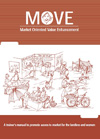
BPF gender/ livelihood innovation
Turning the poor into entrepreneurs can radically transform their standard of living and social status. BPF's Market Oriented Value Enhancement (MOVE) methodology teaches participants to understand and enter the market through an innovative tool called a Participatory Market Appraisal.
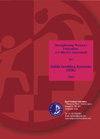
For Mahila Samakhya, Karnataka
An assessment of the growth of women's federations through their history, activities and feedback of their performance from women. This study was based on 32 federations formed by Mahila Samakhya, Karnataka, and assessed the need for capacity building to strengthen these federations.
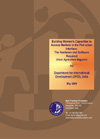
Urban Agriculture magazine, 2004
Livelihood initiatives often overlook the needs of landless women, who tend to be less mobile and encumbered by reproductive responsibilities. This article makes a strong case for addressing the issue by a) building their capacity to understand markets b) mobilising them into groups c) creating innovative financial instruments, and d) providing a marketing infrastructure.
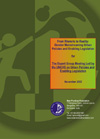
For the Expert Group meeting led by the UNCHS on Urban Policies and Enabling Legislation
A gender perspective of urban issues and women's initiatives that have emerged in response to them; a framework with policy implications for engendered governance and gender sensitive urban policies.
On behalf of the Huairou Commission, commissioned by The LIFE Global Programme, UNDP
A summary of the capacity building and support needs of grassroots networks attempting to build alliances with other institutions working to combat poverty. It outlines the role of government and donors in legitimising the influence of these networks so that communities can have a say in determining their own destinies.
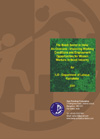
For ILO and Department of Labour, Karnataka
A comprehensive overview of India's beedi industry and the goals and expected outcomes of ILO's beedi sector programme. The report recommends a two pronged strategy of working with the community that includes a) mobilising female relatives of beedi workers into SHGs for alternative livelihoods, and (b) working with unions to improve the conditions of beedi workers.
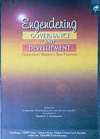
On behalf of the Huairou Commission
A compendium of best practices in local governance and community participation, these articles describe solutions created by grassroots women to their community issues in South America, Africa, Asia, Eastern Europe and the Mideast.
For the Women and Child Development Department, Government of Karnataka
This study reviews self-help group programmes and concepts, identifies gaps and offers recommendations for information and field initiatives in Karnataka. The overall policy to facilitate women's access to and control over resources, was written from the perspectives of three institutional actors in the field - government, banks and the NGO sector.
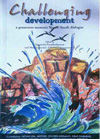
Community-based organisations of grassroots men and women possess a significant knowledge base that tends not to leave the local arena. Representing writings from the north and south, this book covers movements from North and South America, Africa, Turkey, Canada and Germany in an attempt to give grassroots community-based women's movements a voice and visibility. Since grassroots women leaders are very rarely the writers and owners of their own work, this book is an accomplishment in that it is their voices and those of other grassroots women that speak through it.